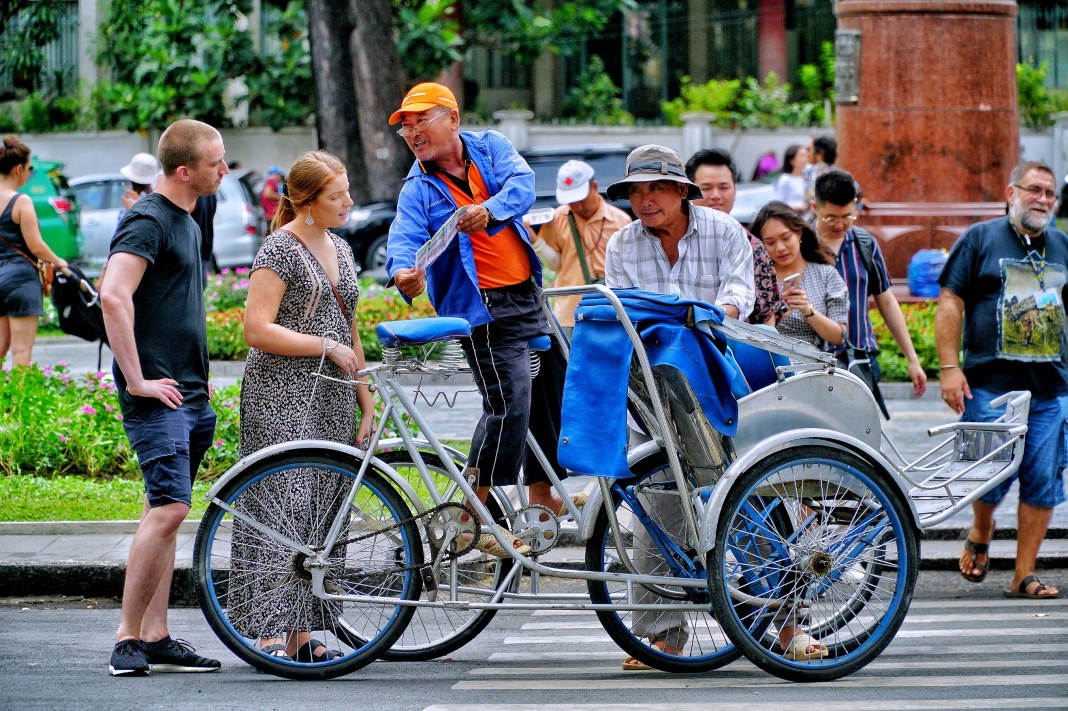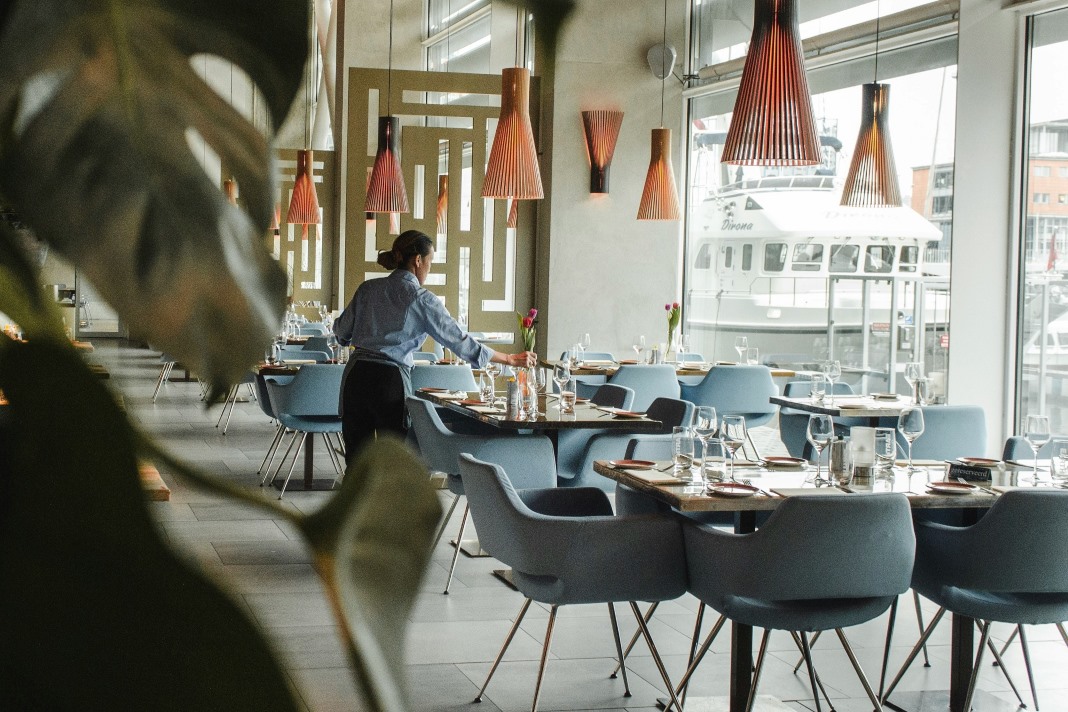Artificial intelligence (AI) can be a powerful tool to attract repeat visitors to Vietnam. From real-time translation to culturally aware digital assistants and personalized tourism experiences, AI technologies can make Vietnam more accessible, engaging, and memorable for international visitors.
Vietnam’s tourism industry has made remarkable strides since Covid-19, with international arrivals near pre-pandemic levels. However, a critical challenge persists: the country’s international tourist revisit rate remains low, hovering below 10%, in contrast with countries such as Malaysia and Thailand.
More than a quarter (28%) of travelers who visited Thailand in 2023 said they intend to return over the next 12 months. For cultural tourists (a market segment that Vietnam aims to attract), intention to revisit is even greater, at 59.42%.
The reasons for this disparity are complex. They can include anything from the attractiveness of destinations to the convenience of transportation, human resource training, cultural and language barriers, the quality of accommodation, and the availability of tourism infrastructure.
Among the factors, there are four important areas where AI can emerge as a powerful tool to address existing challenges: tackle language barriers, bridge cultural gaps, enhance service quality, and elevate the tourist experience.
1. Overcoming the language barrier with AI-powered translation
The Vietnamese language, with its complex tonal system, unique script, and distinct grammar, presents a challenge for most international visitors. Outside of major tourist hubs, tourists might have trouble communicating or navigating without a command of the local language. This linguistic hurdle extends beyond mere communication difficulties, leading to cultural misunderstandings and a sense of disconnect from local experiences.
Advanced AI translation tools can significantly reduce language barriers via:
• Real-time neural machine translation: Utilizing deep learning models, these systems can provide near-instantaneous, context-aware translations between Vietnamese and numerous languages. This technology can be integrated into mobile apps, wearable devices, and even augmented reality (AR) glasses, allowing for seamless communication in various settings.
• Multimodal translation: AI systems that combine visual and audio inputs can translate not just spoken language, but also text on signs, menus, and documents. This helps tourists navigate and understand their surroundings more effectively.
• Cultural nuance detection: Advanced AI models can be trained to recognize and explain cultural nuances in language, helping tourists understand subtle meanings, idioms, and context-dependent expressions that are crucial for deeper cultural engagement.
Some of these AI tools are already under development in Vietnam. For example, the Information Technology Institute under the Vietnam Academy of Science and Technology has developed AI-based advanced machine translation technology that translates from Vietnamese to regional languages including Lao, Khmer, Thai, Malay and Indonesian, and vice versa, as well as English.
In another example, the Samsung Research & Development Institute Vietnam (SRV) has successfully trained its AI model to recognize even the most subtle differences in the Vietnamese language, with great potential for tourism development.

2. Navigating cultural complexity with personalized cultural intelligence assistants
Recent research conducted in Binh Thuan Province showed that cultural contact directly impacts both satisfaction and revisit intention among international tourists. Vietnamese culture can be intricate and sometimes perplexing for foreign tourists. Navigating social norms, etiquettes, and cultural nuances can be overwhelming, potentially leading to misunderstandings or missed opportunities for deeper engagement.
AI-driven digital companions can serve as cultural guides, offering personalized insights and recommendations due to:
• Adaptive learning algorithms: These assistants can learn from user interactions and preferences, providing increasingly relevant cultural information and advice over time.
• Contextual awareness: By integrating GPS data, calendar information, and real-time event updates, these AI assistants can offer timely and location-specific cultural insights, enhancing the tourist’s understanding and appreciation of their surroundings.
• Virtual cultural mentors: Using natural language processing and generation, these AI systems can engage in dialogue about Vietnamese culture, history, and customs, offering a more interactive and engaging learning experience.
AI-generated tourism assistants have already been developed in Vietnam. For example, in Can Tho, a major city in the Mekong Delta, researchers and authorities have developed and implemented an AI-powered website and app to provide tourist recommendations since 2019. This system offers suggestions for attractions, accommodations, and activities based on user preferences.
3. Elevating hospitality staff quality though AI-enhanced training
Recent studies show that whereas approximately 20,000 students graduate from travel, tourism, and hospitality programs in Vietnam annually, the industry requires a minimum of 40,000 trained professionals each year to meet its growing needs.
This shortage has direct implications on service quality and consistency, which are crucial factors in producing memorable tourist experiences, which in turn encourage repeat visits.
Addressing this shortage, AI can revolutionize training programs for tourism and hospitality professionals:
• Personalized learning paths: AI algorithms can analyze individual staff members’ strengths and weaknesses, creating tailored training programs that focus on areas needing improvement, particularly in cross-cultural communication and understanding.
• Virtual reality (VR) simulations: AI-powered VR scenarios can provide immersive training experiences, allowing staff to practice handling diverse cultural situations and improving their intercultural competence.
• Continuous assessment and feedback: AI systems can monitor staff-guest interactions, providing real-time feedback and suggestions for improvement, ensuring consistent high-quality service across the industry.

4. Curating personalized cultural experience through predictive analytics
Researchers from RMIT campuses in Vietnam and Australia have recently secured funding to develop augmented reality (AR) experiences aimed at enhancing tourism experiences along the Kenh Te canal in HCMC. These innovations include AI-powered guided walking tours along the canal banks in districts 4 and 7.
This is just an example of how AI can help create more satisfying and culturally rich experiences. In addition, big data and machine learning can be used for:
• Dynamic experience recommendations: AI systems can continuously update their recommendations based on real-time data, such as weather conditions, local events, and crowd levels, ensuring tourists always have access to optimal cultural experiences.
• Sentiment analysis for continuous improvement: By analyzing online reviews, social media posts, and direct feedback, AI can help identify areas where cultural experiences can be enhanced, allowing for rapid iteration and improvement of tourism offerings.
• Preference mapping: By analyzing vast amounts of user data, AI can identify patterns in tourist preferences, allowing for the creation of highly personalized itineraries that align with individual cultural interests and learning styles.
The integration of AI technologies in Vietnam’s tourism sector goes beyond merely addressing current challenges; it positions Vietnam at the forefront of innovation in Southeast Asian tourism. This tech-forward approach could elevate Vietnam from a one-time destination to a world-class tourism hub that visitors return to again and again.
Looking ahead, AI’s potential in Vietnam’s tourism sector can be extended to address critical workforce challenges. The third article in this series will focus on how AI-driven distance education can help bridge the significant skills gap in Vietnam’s tourism and hospitality industry.
[This is the second instalment in a three-part series on AI’s impact on Vietnam’s tourism sector, written by Dr Nuno F. Ribeiro, Senior Lecturer in Tourism and Hospitality Management at RMIT University Vietnam. Read the first article here.]
(*) Dr Nuno F. Ribeiro is a Senior Lecturer in Tourism and Hospitality Management at RMIT University Vietnam









